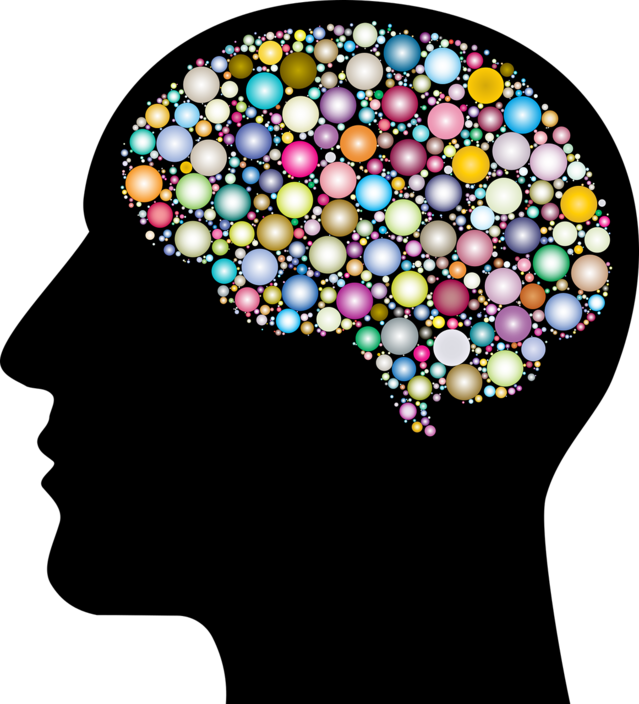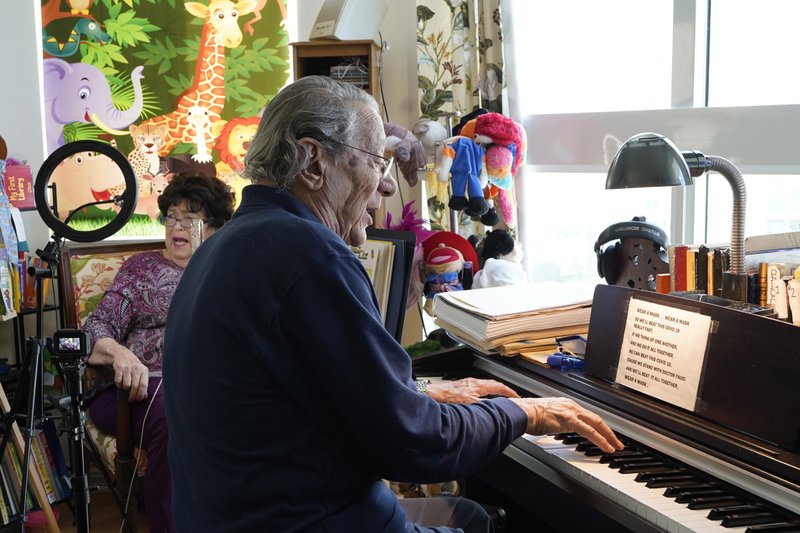The pandemic has impacted us from a psychological perspective in many ways. While there is growing recognition that COVID itself may have near and long-term impacts on cognition so, too, do depression and anxiety in general and each of those specific to the distress caused my living through the pandemic. Psychologist and author Dr. Melissa Burkley recently published an article entitled “Are These Bad Habits Ruining Your Brain? 3 simple ways to build a better brain at any age.” In it she discusses some simple approaches anyone can take to improve cognitive health. Some areas discussed include avoiding sensory overload, finding any opportunities to unplug from our ever growing digital lives and, interestingly enough, attending to our auditory health. Read the full article at PsychologyToday.com.
Category: Daily Dose
An archive of the Daily Dose to inspire us through the most challenging times.
Feel Good Friday: Stump the Maestro
It began last March when the coronavirus locked them down in a one-bedroom apartment near Miami and is still going strong.
Name a show tune, jazz standard or movie score, and chances are 91-year-old Peter can not only hum it, but play it from memory on his keyboard. Once a week Peter and Veronica Fuchs takes requests on their daily Facebook Live show “Stump the Maestro.” While every now and then the former composer, conductor and Holocaust survivor is confounded by a request overall it is rare that someone truly stumps him.
In his quest to play what people want to hear you will occasionally find him stumbling through a stack of books beside the keyboard, furiously searching for the music while his wife continues talking to the audience they’ve grown over months of isolation. But almost without fail he will get there, in time, and give people the sonic break they need from the weight of the pandemic.
Learn more about Peter, Veronica, and their musical adventures at APNews.com.
Feel Good Friday: Rescue Lifting Medical Debt
When flight paramedic Rita Krenz boards a helicopter, she knows her patients are about to face problems she can’t fix — a health care system that buries people in debt after a car accident or stroke.
So she decided to do something about it. She turned for help to RIP Medical Debt, a nonprofit that buys and forgives medical debt.
Krenz started a fundraising campaign that brought in more than $18,000 for the charity. That money has helped RIP Medical Debt forgive the debt of more than 900 people so far, with the average bill abolished totaling around $1,340.
Learn more about Krenz, her efforts, RIP Medical Debt, and more at APNews.com.
Feel Good Friday: Food for the Soul
Once a week Glenda Andrew and other volunteers prepare hot meals with the zing of their Caribbean heritage and deliver these meals to Britain’s older immigrants who have been isolated from friends and family by the pandemic.
“It’s a great way to connect and build that relationship, but I didn’t know that at the time,″ Andrew said of the project’s beginnings. “I just knew that I wanted to do something and make sure that they were getting a hot meal — not sandwiches, not soup — getting something that they’re accustomed to eating and hope that they would enjoy it.”
Once a week, for the last 42 weeks, the lucky seniors on Andrew’s list have been treated to delicacies such as jerk pork, curry goat and cow foot soup accompanied by rice and peas, yams and plantains. Portions are hefty, so there’s enough to go in the freezer for another day. Last week, some 400 meals were packed into yellow foam packages and delivered by volunteers.
In addition to food, the volunteers offer a bit of human contact. The loneliness and isolation of the past year is painful for many of the seniors. When deliveries arrive, they seek out friendly gossip with the volunteers about what their neighbors are up to.
Learn more about Glenda and her efforts at APNews.com.
Body Awareness
Recently, Crystal Hoshaw wrote a piece on the subject of body awareness, why it may be beneficial to improve this, and how that can be done. Her takeaway message is that everyone can benefit from improving their body awareness, and especially helpful for people who’ve recently been injured, had surgery, or have a developmental or neurological condition. Simple exercises, mindfulness, and focused therapies can all help you deepen your connection with your body. Covered in this article are how to combine physical exercise with meditation & mindfulness, as well as the specific benefits for different groups including those with autism, The full article can be read here:
Feel Good Friday: Floral Hearts
When artist Kristina Libby started the Floral Heart Project to give the survivors of COVID-19 victims’ places to mourn, she was thinking of people like Michelle Pepe, who last saw her father just before she went into quarantine after contracting the coronavirus — and unwittingly infecting both parents. Her last goodbye to him came by phone. Pepe and her family never had the chance to have a proper memorial, and so Libby stepped in.
Each week she would construct and lay large floral hearts around New York City.
“I would watch people kneel down and pray. I would watch people sort of kiss their fingers and then kiss the heart,” Libby said. “It was allowing them to feel like it was OK to admit our sadness in this moment.”
Watch the story of Kristina Libby and her efforts to help provide memorials below and read the full story at APNews.com.









